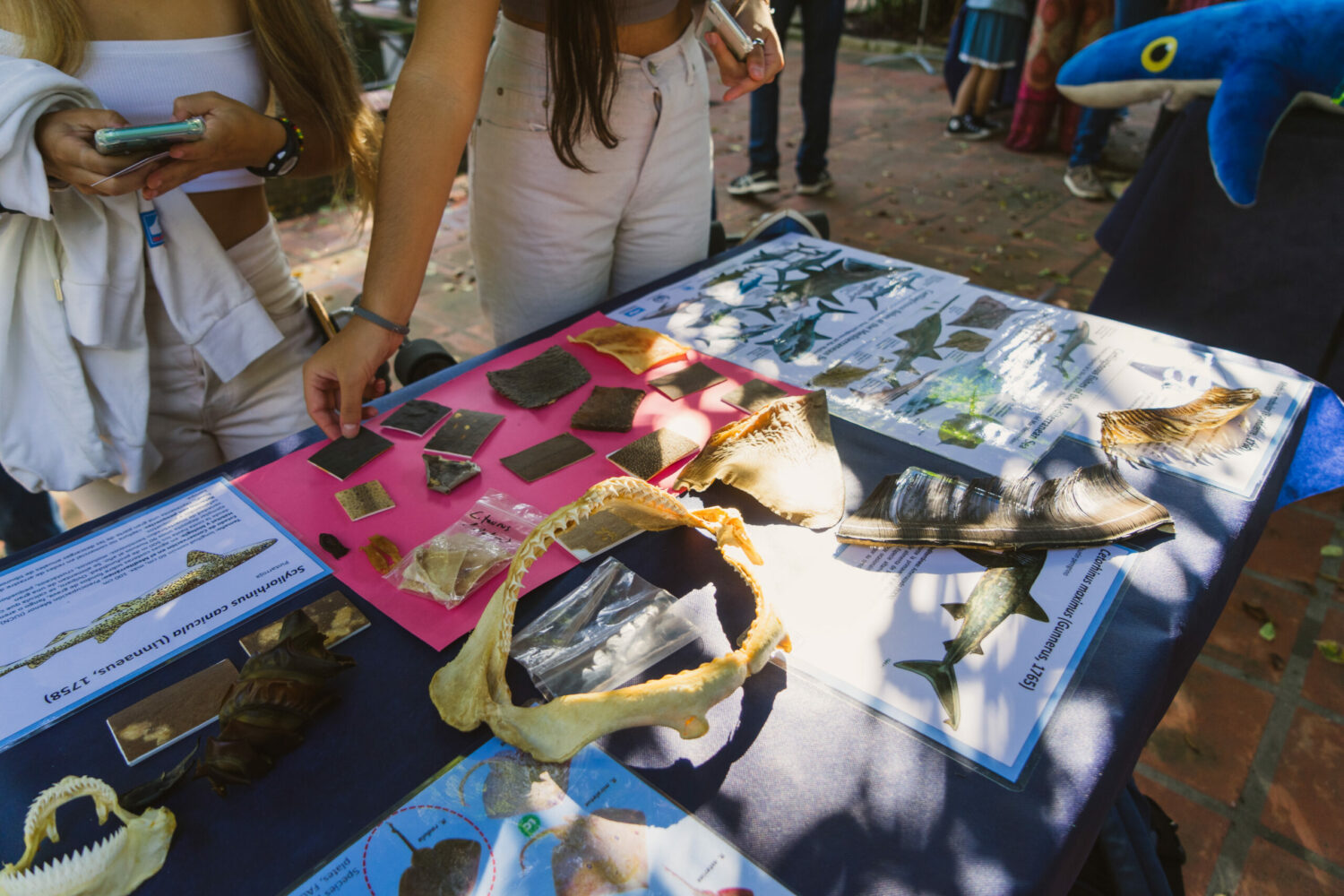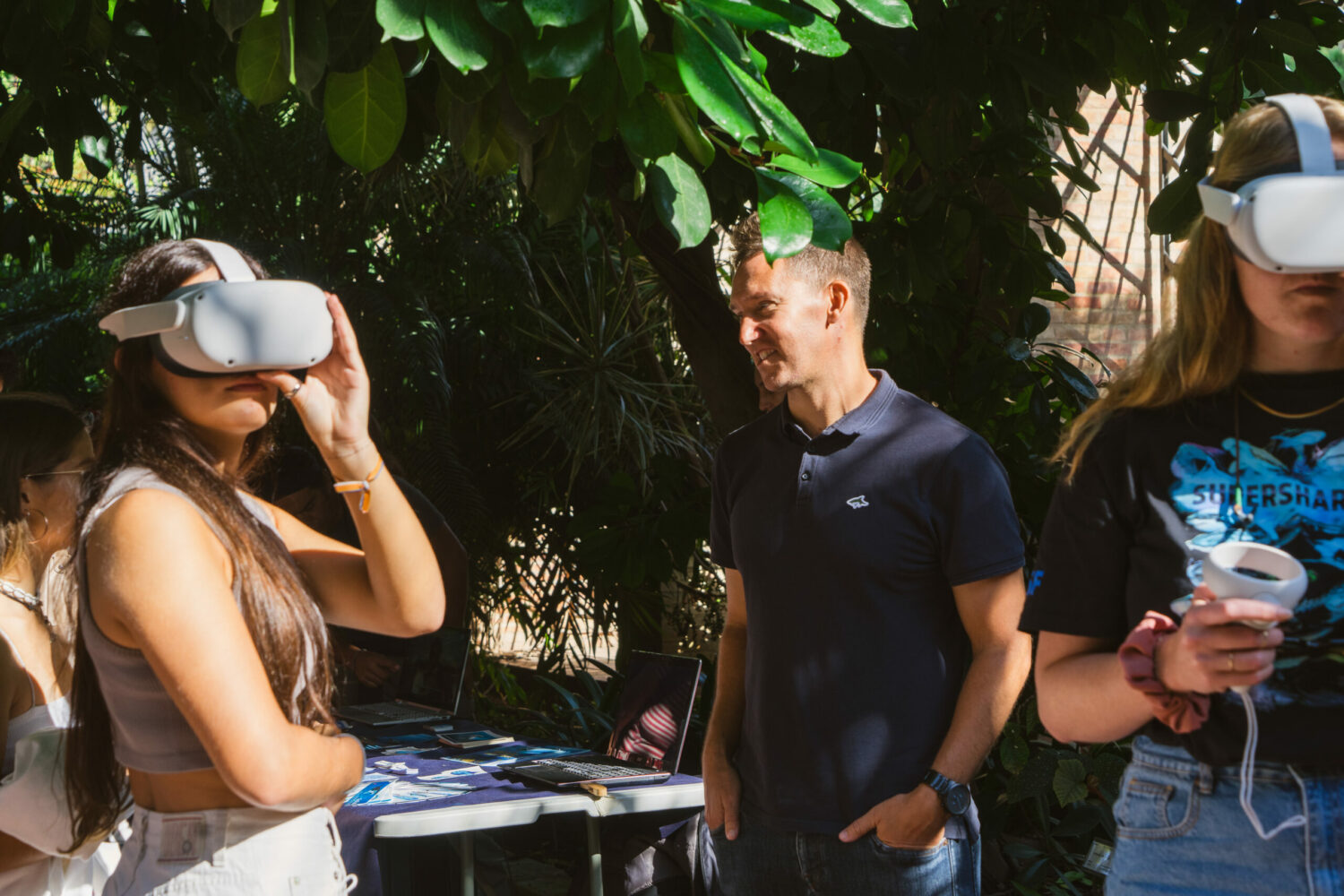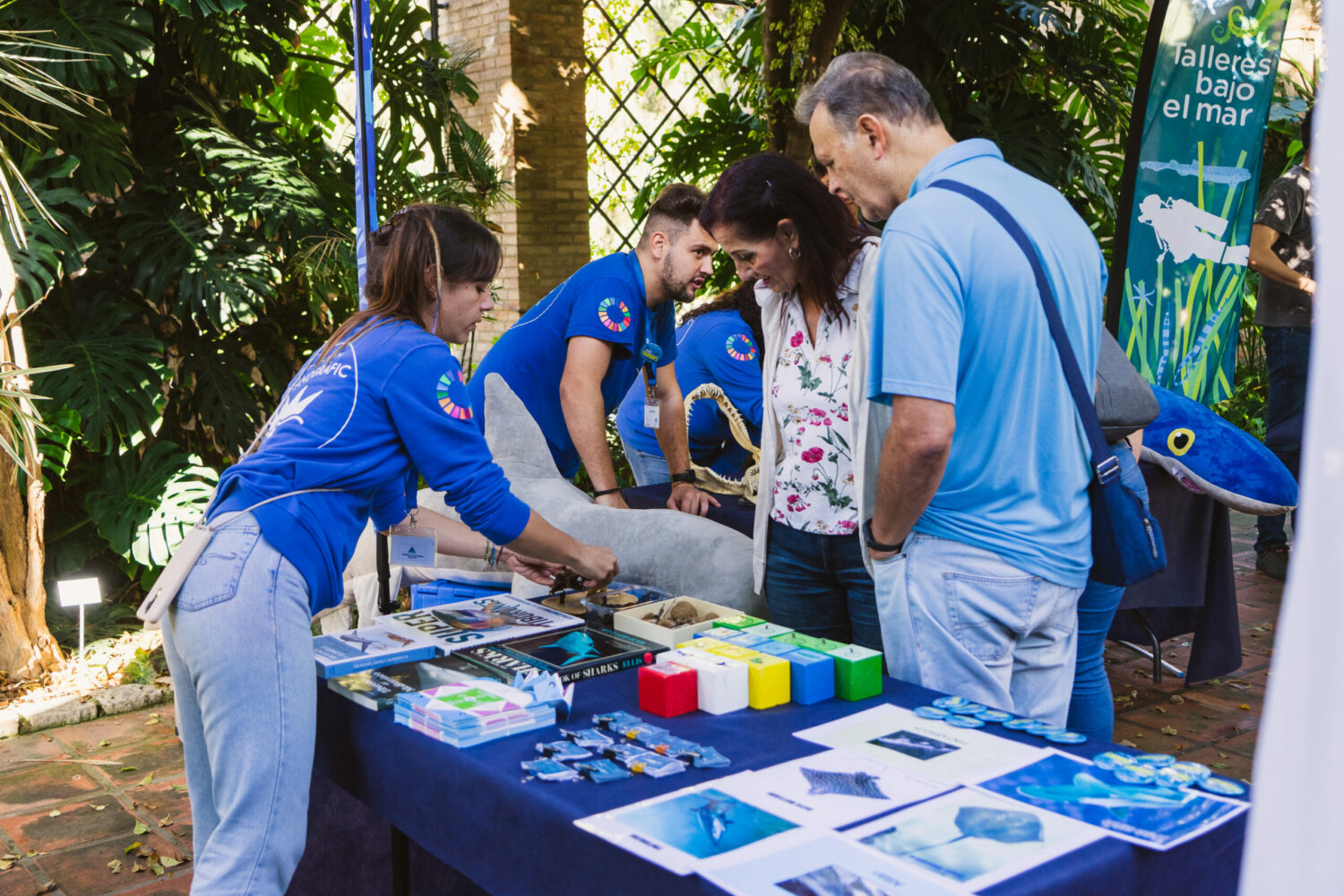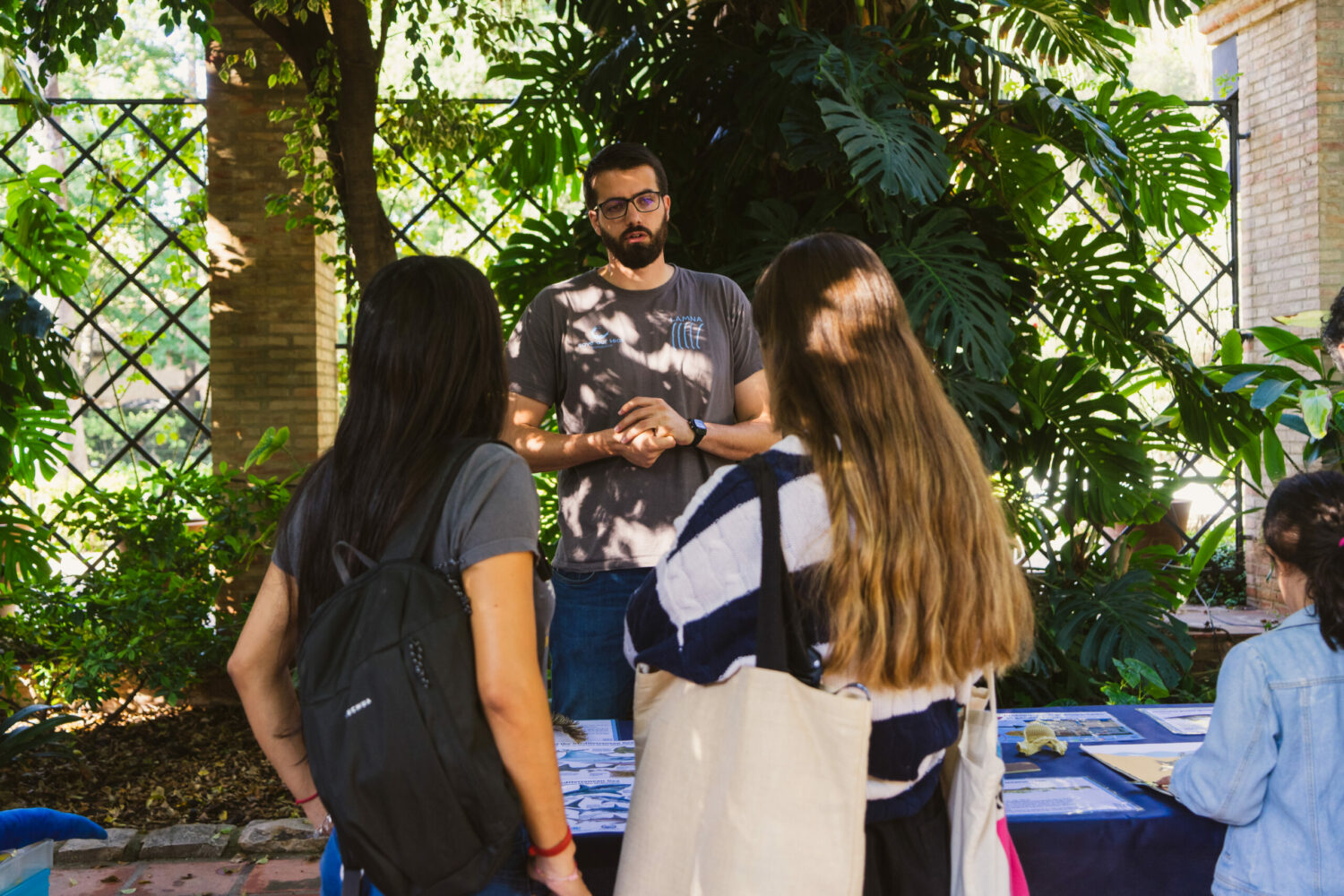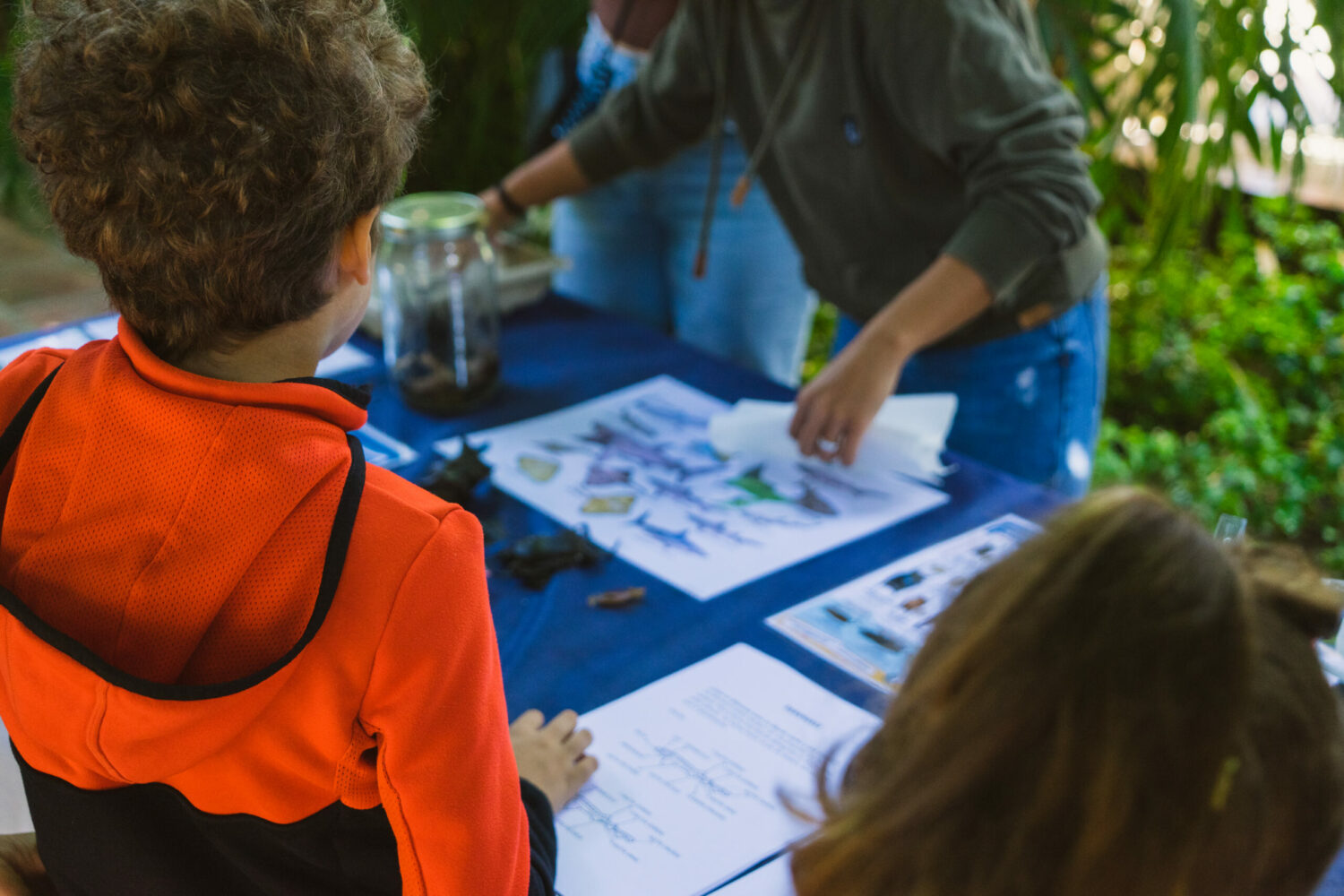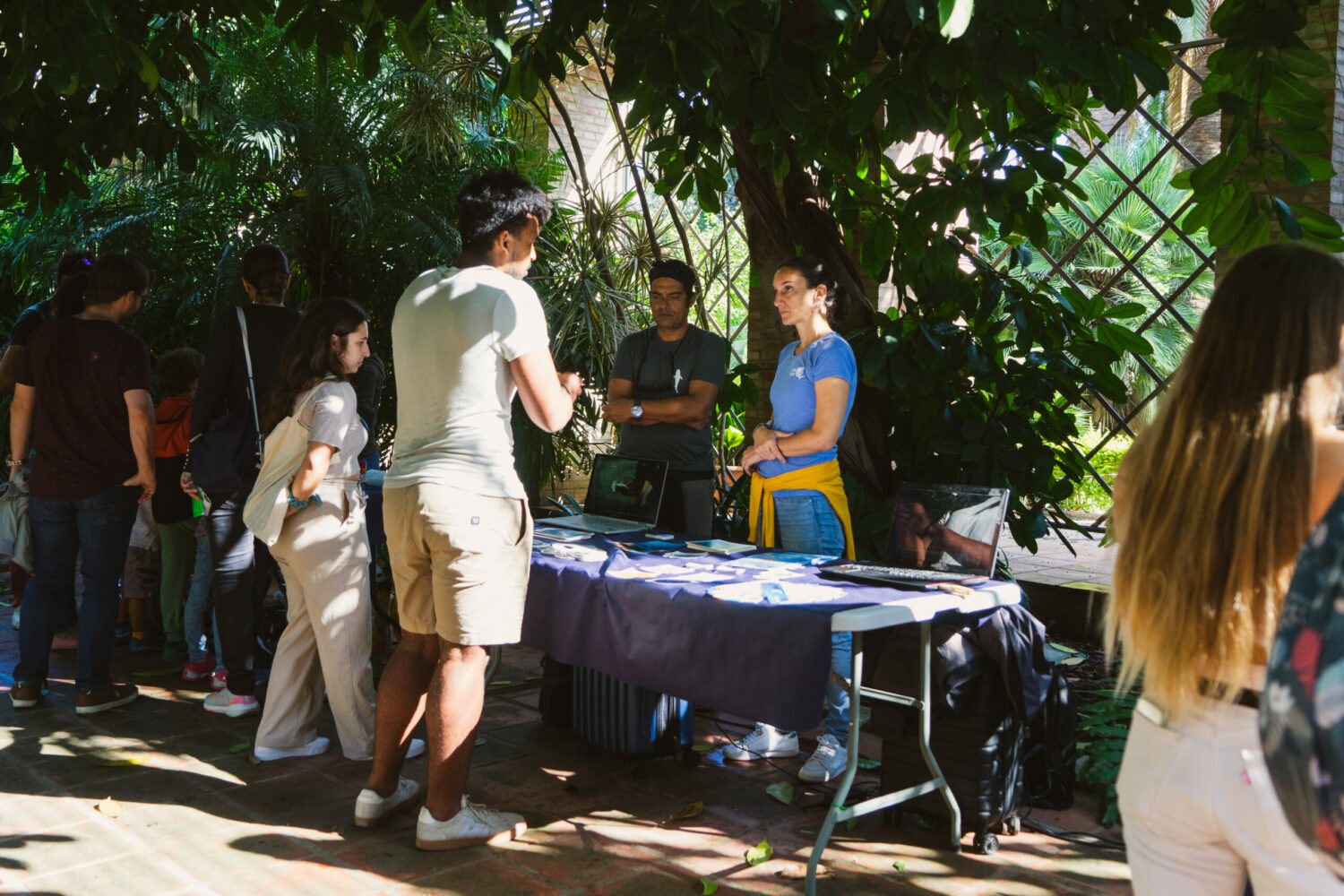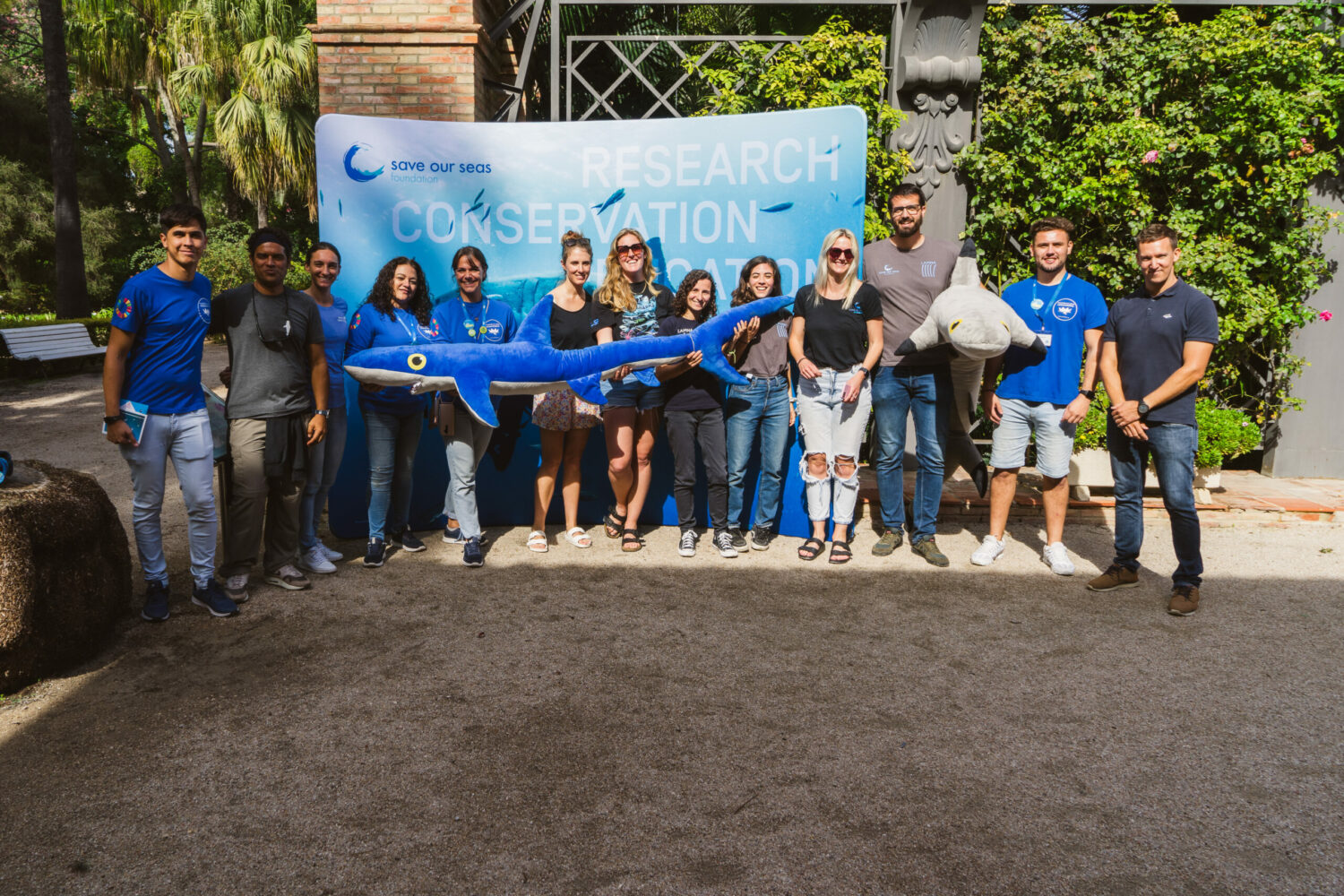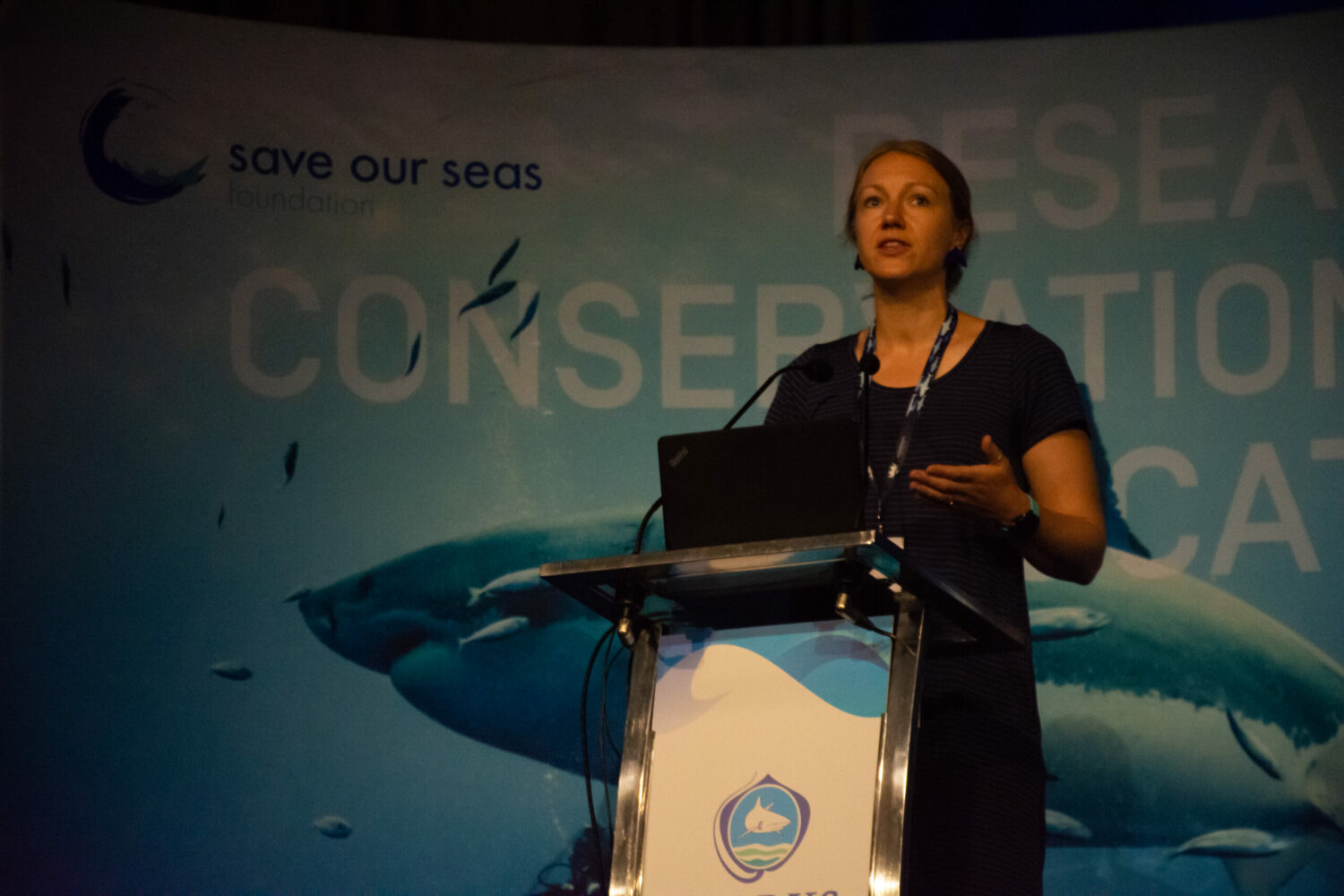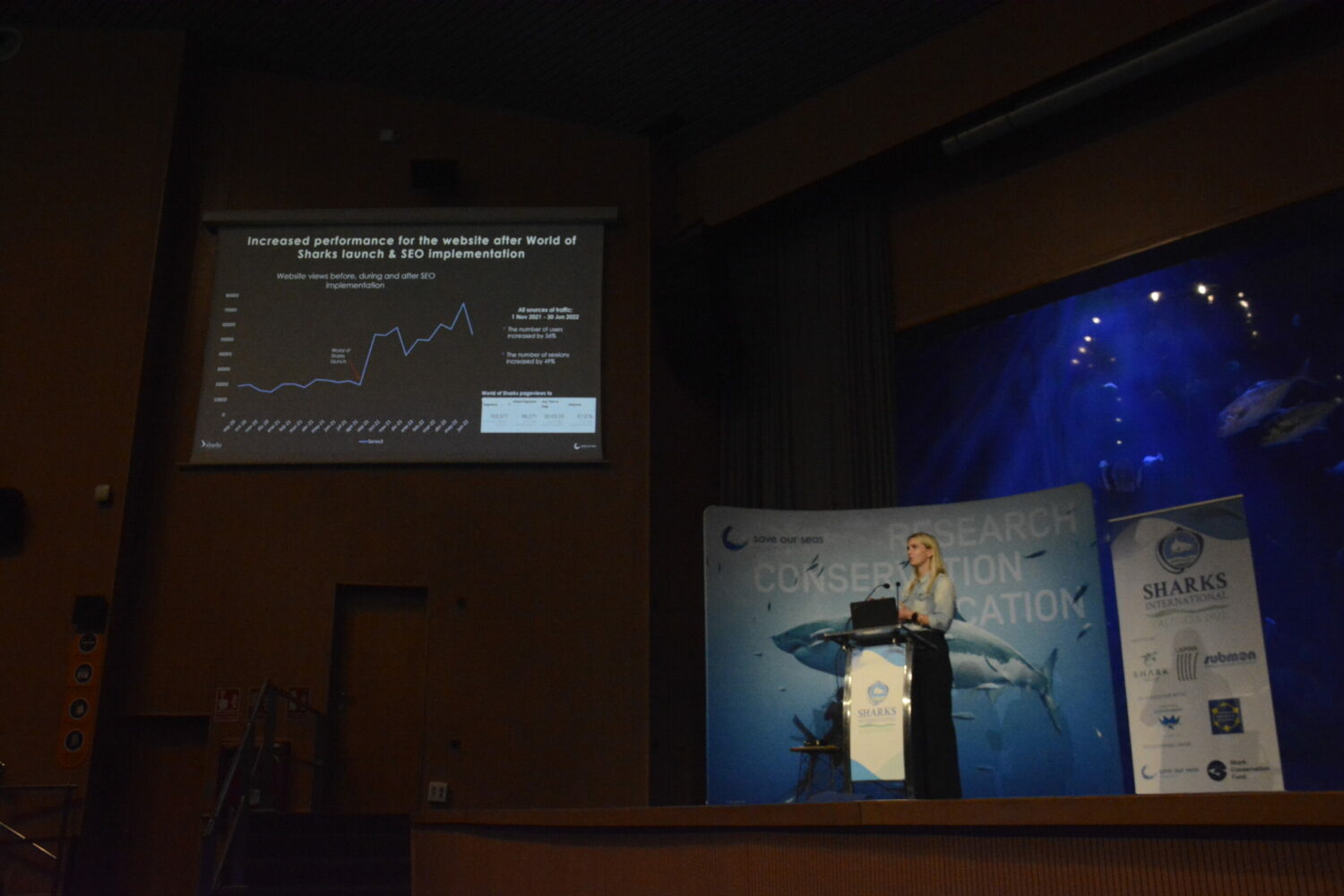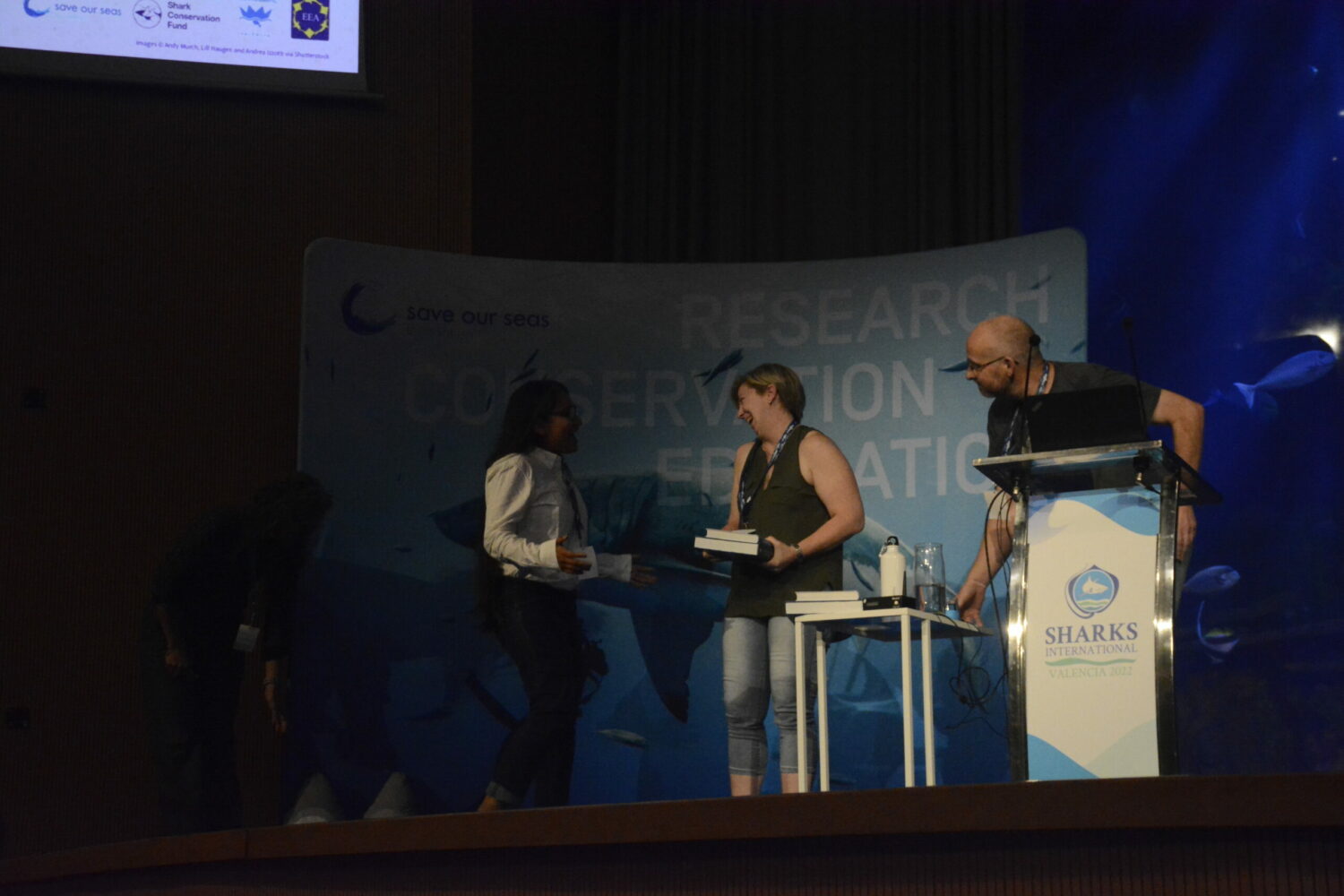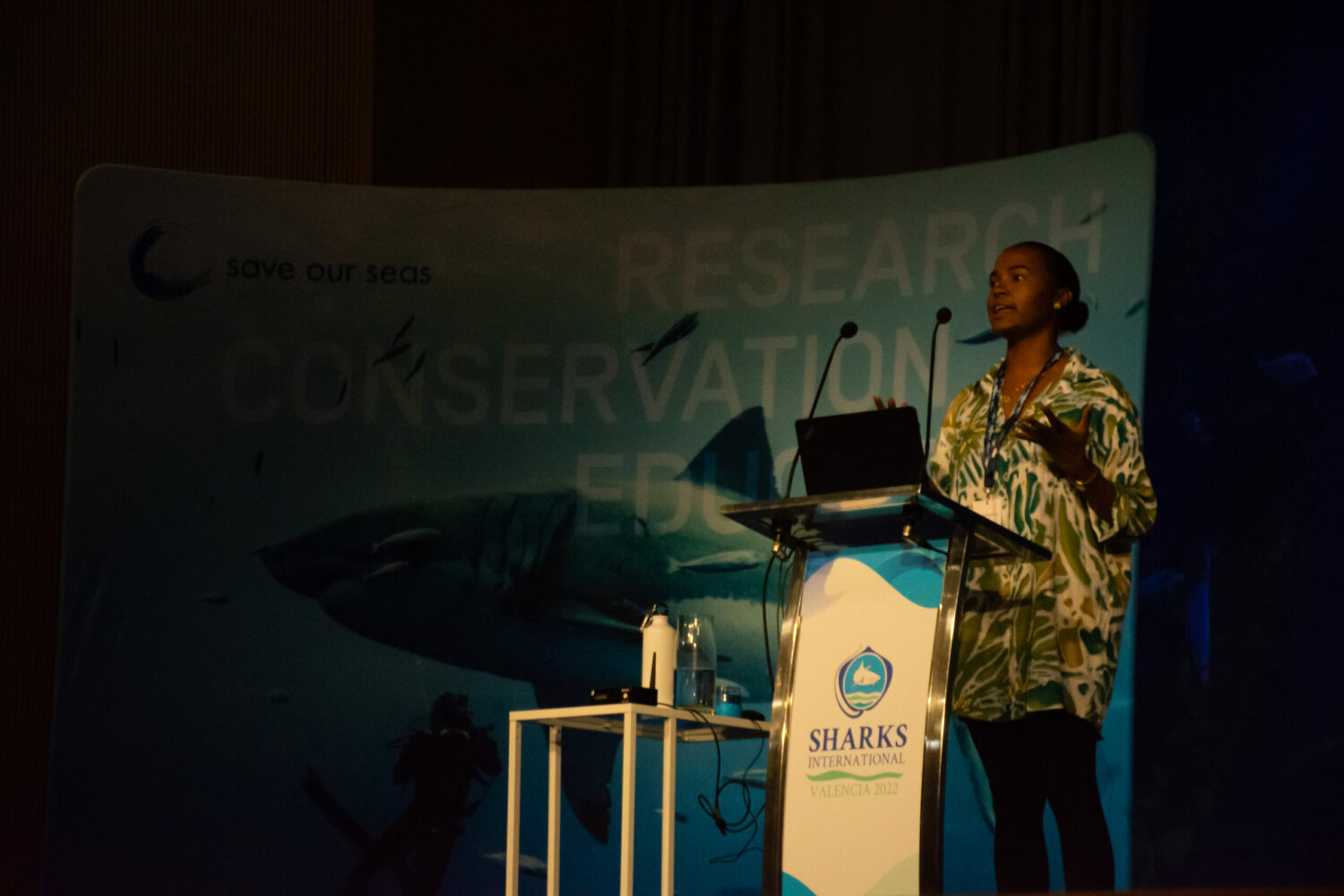Imagining a future for sharks and rays
The current conservation status of sharks and rays, and the latest ideas for their research, management and protection, were the topic of the day for the 600 scientists, advocates and educators from 69 different countries who gathered online and in-person for the Sharks International 2022 conference.
Key messages came in equal doses of concern and hope, and everything from shark fisheries to science communication, outreach and education was discussed. A clear message of global unity, transparency and cooperation to reverse the most worrying trends for sharks and rays was the undercurrent that swept the entire conference along. This theme, as well as the need for awareness of borders and barriers – for sharks and those who study them – was introduced by Dr Michelle Heupel in her opening keynote address at the in-person conference. Understanding where and how sharks move helps us to better manage and protect their populations. Promoting access and providing support to the people who study and fight for sharks is a clear goal of the Sharks International platform. It was no small feat for the organisers of the 2022 conference to overcome the recent challenges brought about by Covid-19 and major global economic turmoil, but the value of bringing people together to express their ideas and to debate and collaborate was undeniably proved worthwhile once again.
What is Sharks International?
An international conference hosted once every four years, Sharks International brings together academics, students, practitioners and advocates in the field of shark and ray science and conservation. The conference is a means to foster a sense of community and to gather passionate individuals from a variety of disciplines, backgrounds and countries to share knowledge and to chart a course for the future of sharks and rays. Three previous conferences have been held in Australia (2010), South Africa (2014) and Brazil (2018). The announcement of the next Sharks International to be hosted by Sri Lanka in 2026 brought much excitement!
What was it all about in 2022?
The forum used a Covid-conscious hybrid model that combined a five-day online event from 10–14 October and a three-day in-person event at the Oceanogràphic Aquarium in the city of Valencia, Spain, from 20–22 October. The combined programme from both events featured talks by 280 presenters who spoke about a wide array of topics: from shark movement ecology, new technology for studying sharks, fisheries and trade, improving our knowledge in understudied areas and of under-researched species to the human dimensions of fisheries, education and management.
Arriving at L'Oceanographic Valencia. Photo © Emilio100 | Shutterstock
How were the issues of the day tackled?
Talks, poster sessions and networking break-aways were all on offer during the online event. Parallel sessions allowed viewers to enter virtual conference rooms where talks were arranged by theme. At the in-person conference, posters were available to view at the venues and live talks ran at two key venues in the Oceanogràphic Aquarium. But it was the creative inclusion of side sessions and public events that opened Sharks International up to discussion and dynamism, moving away from simply listening to opportunities to engage.
Sharks in the Garden brought shark enthusiasts of all ages and backgrounds to the Jardí Botànic Greenhouse in Valencia, where representatives of NGOs, universities and aquaria were on hand to answer all manner of questions. Shark Night put ocean lovers on stage to share their saltiest tales of sharks, the sea and exploration with a public audience. Attendees could enjoy light canapés and beverages while learning to love the ocean and fall in love with sharks.
At the business end of the shark policy and engagement spectrum, workshops in the lead-up to the in-person talks at the Oceanogràphic Aquarium enabled researchers and policy specialists to engage on major topical issues such as the Convention on International Trade in Endangered Species of Wild Fauna and Flora (CITES) Conference of Parties (COP) 19 that was hosted in Panama shortly after Sharks International.
Tiburones en el Jardín (Sharks in the Garden) public event
What was there to learn?
Keynote addresses came from five experts who offered reflections, shared knowledge and challenged the community to keep the momentum of the conference flowing into their respective sectors. A history of the approaches used to assess shark populations in the Atlantic came in the form of an overview from Dr Enric Cortés from the National Oceanic and Atmospheric Administration (NOAA). Sonja Fordham gave a heartfelt and moving introduction to her keynote address, which reflected on what’s working – and what’s not – in shark conservation. However, it was the sobering account from Nick Dulvy that gave clear insight into overfishing as the primary driver of shark and ray declines worldwide. He traced the IUCN Red List process and gave insights into the two key advances that have enhanced our understanding of the extinction risk for sharks in the past two decades. It was challenging to listen to if you care about sharks, but the audience, rather than being discouraged, received it as a frank call to continued action.
Save Our Seas Foundation (SOSF) project leader Phil Doherty highlighted findings from a shark and ray hotspot in the Republic of Congo, emphasising that 81% of the 42 species he recorded in one of the first surveys in the country were at risk of extinction. Carolina de la Hoz Schilling discussed similarly important findings from Mauritania, where two-thirds of the 30 species she has recorded in surveys are classified as Vulnerable, Endangered or Critically Endangered on the Red List of the International Union for the Conservation of Nature (IUCN).
Diana Catarino took her audience into the deep, challenging traditional survey methods and trialling non-invasive eDNA and baited remote underwater stereo-video survey techniques as potentially more efficient means to monitor threatened deep-water species. From her experience in Bangladesh, Alifa Bintha Haque explored collaborative ways of turning fishers into shark conservation champions. And back in Africa, Issah Seidu showed that guitarfish are caught and retained in Ghana’s fishery for local consumption and the trade in their fins and meat.
Members of SOSF from around the globe present at Sharks International 2022
Where to from here?
Far from a once-off meeting of minds, the Sharks International community has been set up to stay engaged until the next in-person conference in Sri Lanka in 2026. Several key individuals and organisations made last year’s events possible and have been instrumental in bringing everyone together. They include the Shark Trust (especially Ali Hood and Paul Cox), Associació LAMNA, Submon, the European Elasmobranch Association and Oceanogràphic Valencia (especially Jaime Penadés Suay and Pablo Garcia). If the effort and enthusiasm of Sharks International 2022 is anything to go by, then the challenges of shark conservation will be worked at diligently and with the belief that we will make a difference.

